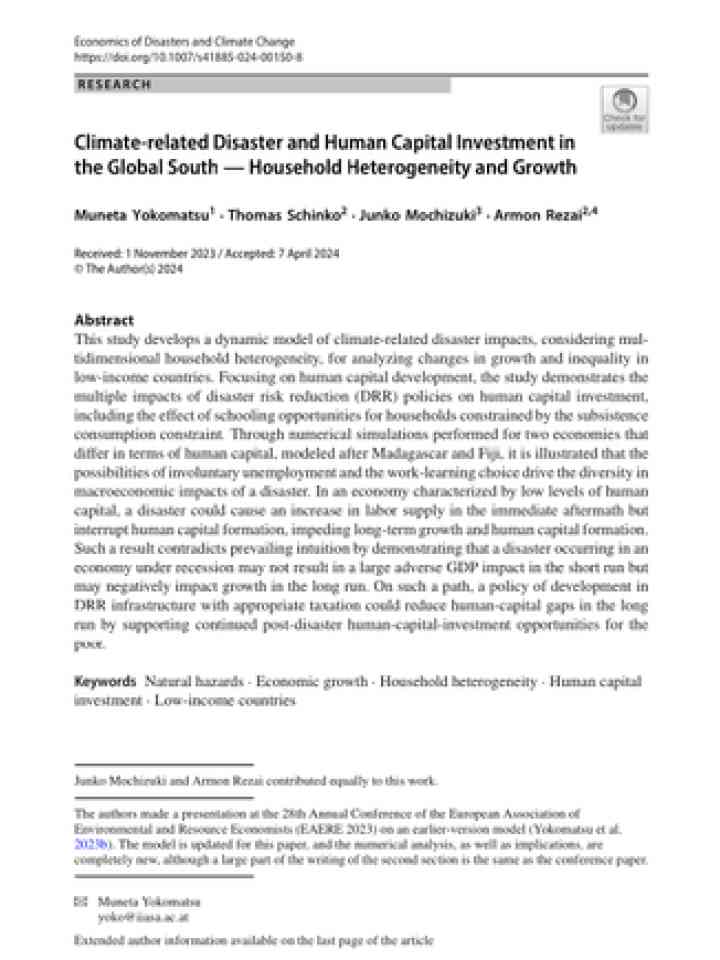Climate-related disaster and human capital investment in the Global South — household heterogeneity and growth
This study develops a dynamic model of climate-related disaster impacts, considering multidimensional household heterogeneity, for analyzing changes in growth and inequality in low-income countries. Focusing on human capital development, the study demonstrates the multiple impacts of disaster risk reduction (DRR) policies on human capital investment, including the effect of schooling opportunities for households constrained by the subsistence consumption constraint.
The analyses clarified that the impacts of DRR policies on human-capital-investment behavior include four effects: the income effect, the substitution effect, the choice-opportunity-provision effect, and the externality-reinforcement effect. Numerical simulations, performed for two economies modeled after Madagascar and Fiji, imply that different effects dominate in each of the two economies, resulting in qualitatively different configurations of the dynamic processes of growth and distribution.
Explore further
